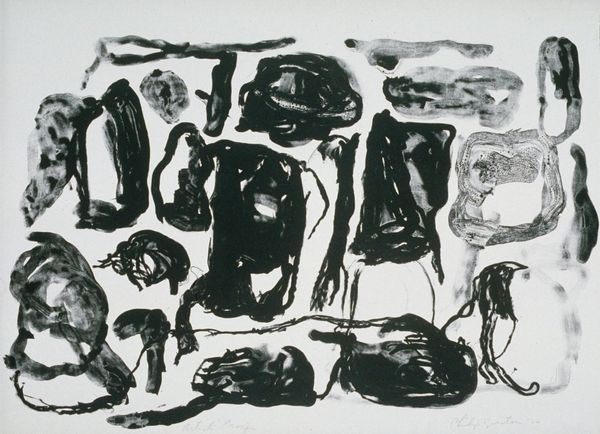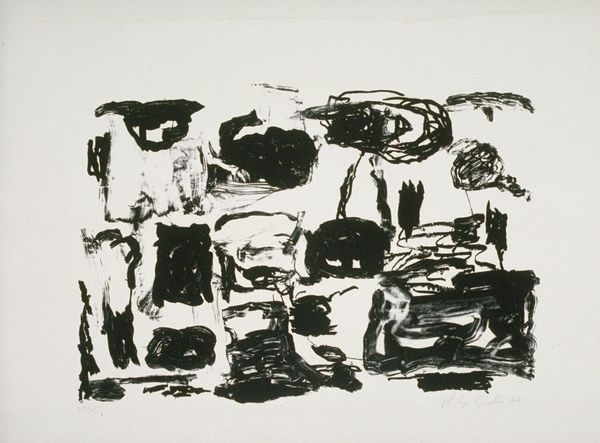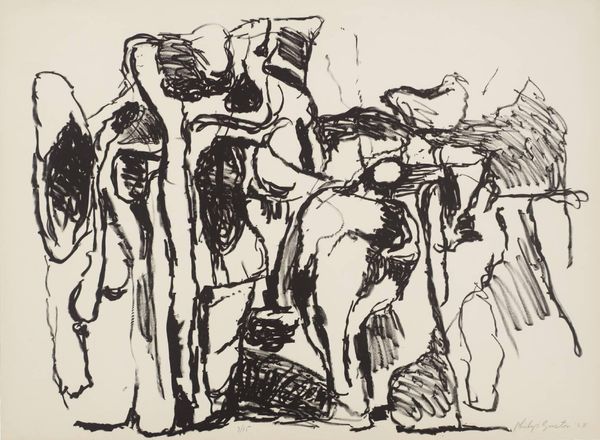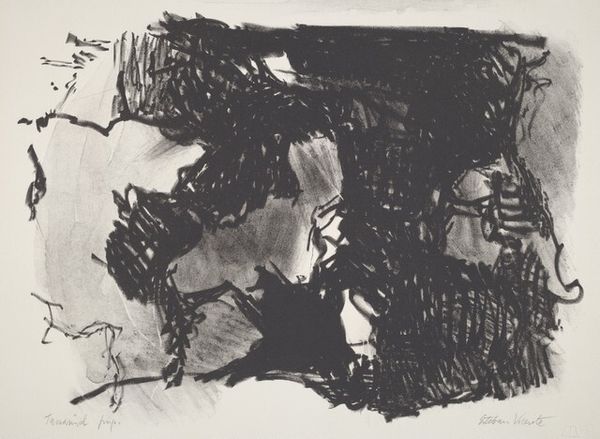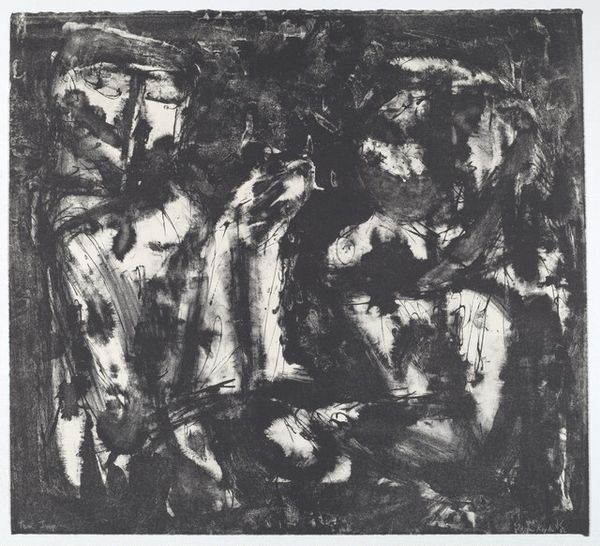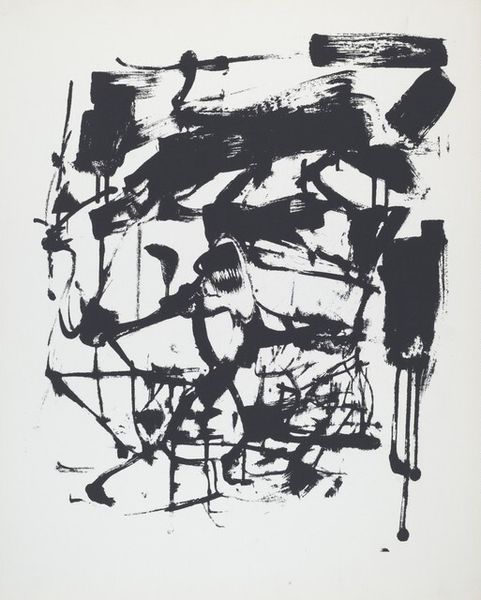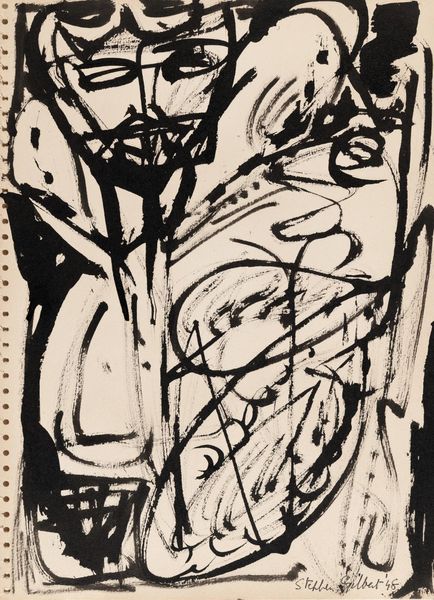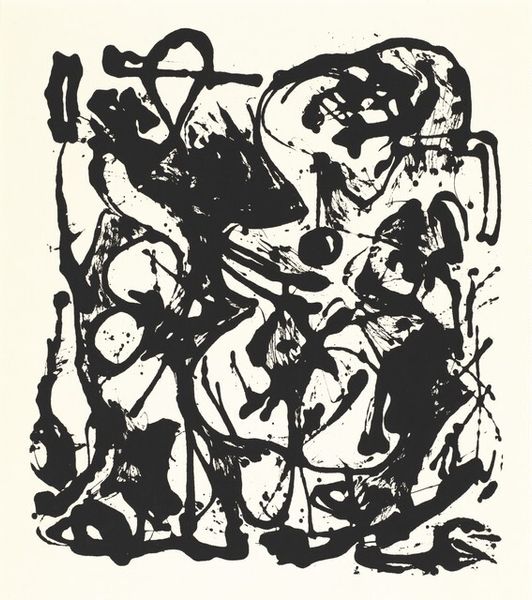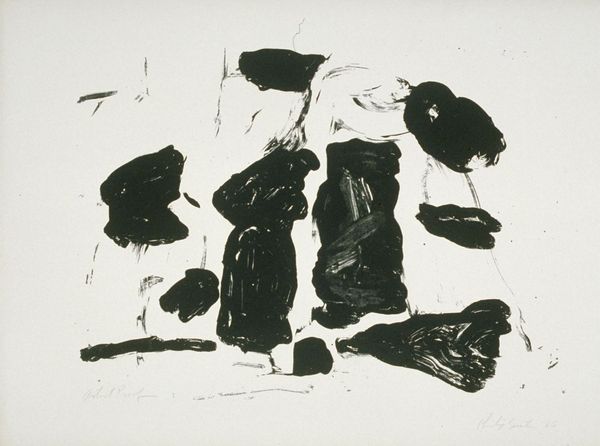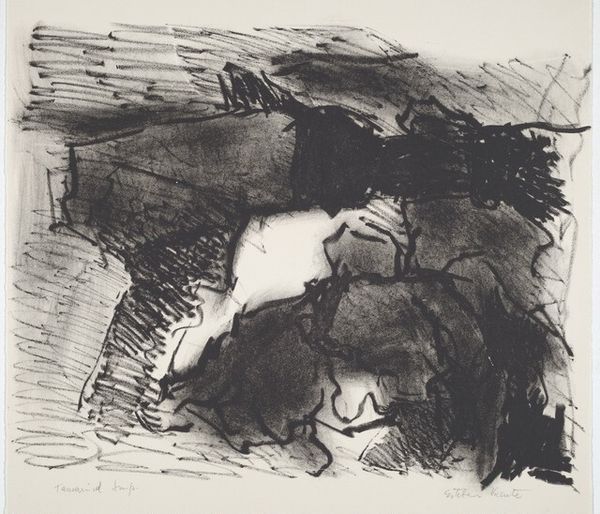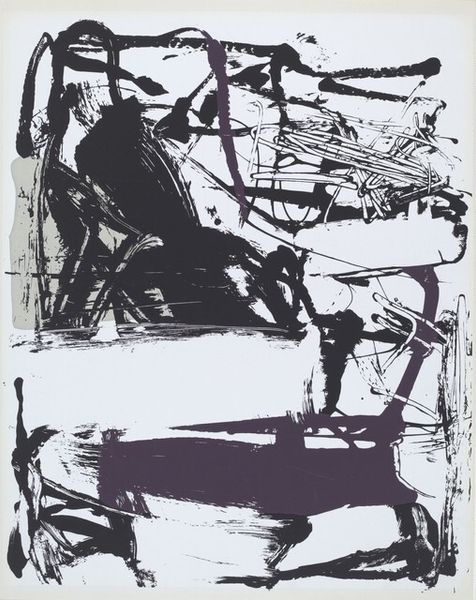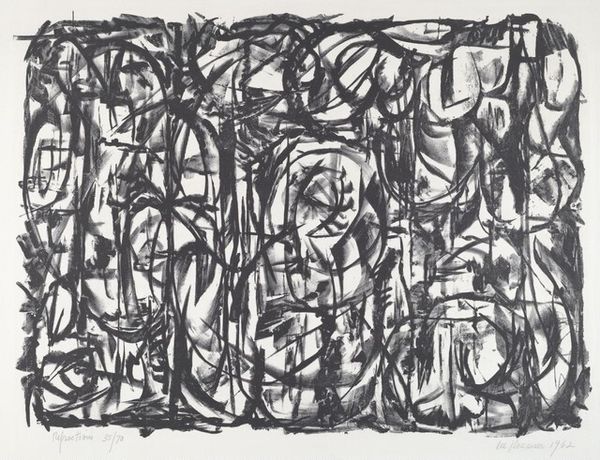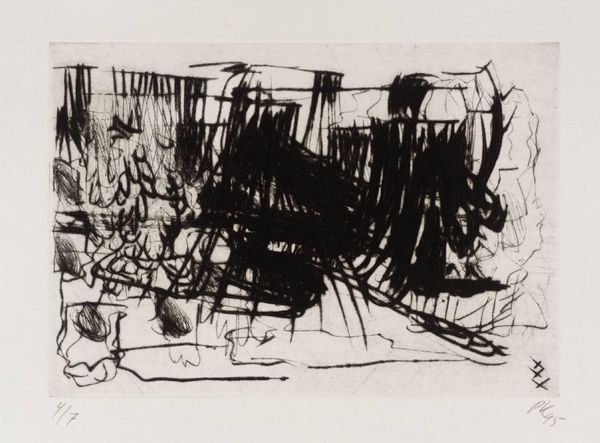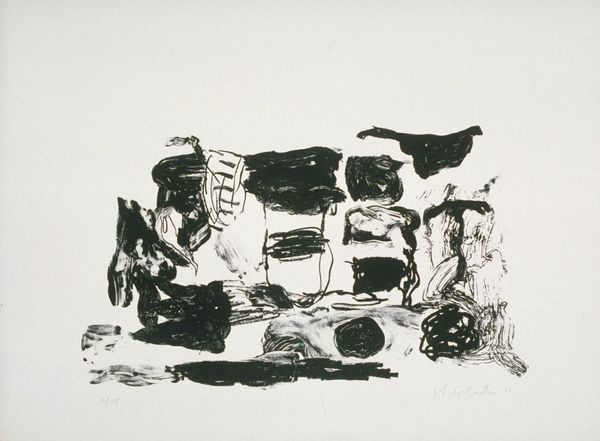
Dimensions: image: 645 x 850 mm
Copyright: © The Estate of Philip Guston | CC-BY-NC-ND 4.0 DEED, Photo: Tate
Curator: This untitled work by Philip Guston, whose dates are 1913 to 1980, is striking, isn’t it? I am immediately drawn to the stark contrast of black ink on the white paper. Editor: There's a chaotic energy here, a sense of restless discontent. I’m curious about the techniques used to apply the ink, were these deliberate strokes or spontaneous gestures? Curator: The printmaking process itself is key. Guston often embraced lithography for its immediacy, allowing for a direct transfer of his gestural style to the stone, then to paper. The materiality informs the final image. Editor: Exactly, and when we consider Guston’s later work, grappling with issues of race and violence, can we see hints of that turmoil in these aggressive, fragmented forms? Curator: Possibly. Although this work remains untitled, dating it and tracing the evolution of Guston’s printmaking can shed light on his artistic development and the social contexts that he was actively grappling with. Editor: Absolutely. It’s a reminder that even abstraction can be deeply intertwined with the artist's socio-political landscape. It all comes back to the artist and the impact of their life on the art. Curator: Indeed. Analyzing the material and the process helps us to better contextualize Guston’s work and understand the artist’s motivations. Editor: And for me, understanding his motivations will open new conversations about art and its role in our society.
